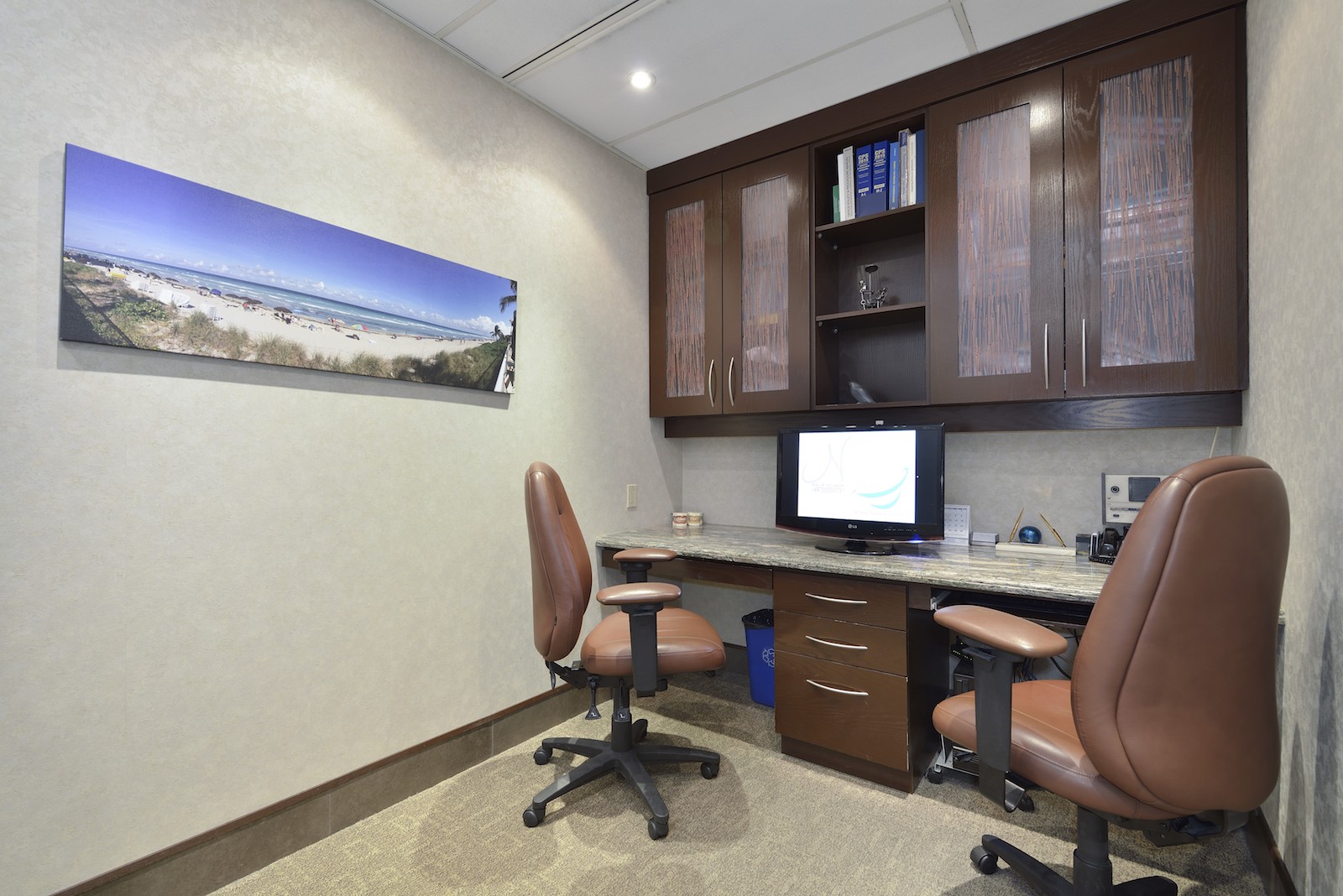Oral Surgery
restore function, health, and appearance
Why Oral Surgery?
Despite all the advances in dentistry, in certain instances a tooth proves unsalvageable and extraction remains the only option. Dependent on the specific issue and tooth-jaw anatomy, extraction may be performed by your dentist or a referral made to a specialist (ie. oral surgeon or periodontist). Simply removing a tooth may provide immediate relief of pain, however there are serious repercussions when a tooth is lost. Shifting of adjacent teeth into the missing tooth space results in bite changes. In addition, the jaw bone begins to wither within weeks of a tooth being removed. With time, facial changes are visible (sunken cheeks and wrinkles). Typically it is important for missing teeth to be replaced to prevent these disfigurations. Although the current standard of care in most instances is to replace the missing tooth with a dental implant, in some instances, a removable denture or fixed bridge may provide a better treatment option.

Do you need oral surgery?
Wisdom Teeth Removal
An opportune time to discuss removal of third molars is when your child approaches age 17. The transition to a modern relatively soft diet began approximately 12,000-15,000 years ago. These changes resulted in a reduction in the size of our jaws. As a result, modern jaws are much smaller and lack the space for wisdom teeth. These evolutionary changes have caused a multiplicity of issues and complications that can arise if wisdom teeth are not removed in a timely manner. Although each case is unique, Dr. Novack tends to recommend wisdom tooth removal by age 17-18 prior to the wisdom tooth roots fully forming. This facilitates wisdom tooth removal, reduces the potential for complications (i.e, nerve damage) and hastens recovery.
Dr. Novack at each visit performs comprehensive oral examinations. When appropriate, necessary X-rays will be taken to evaluate the position of the wisdom teeth (mid-teenage years). All findings will be discussed in a collaborative manner so that the best approach for your child can be defined.
Frequently Asked Questions…
Many people are unaware that an increasing number of lucky individuals are born without their wisdom teeth. As humanity has evolved from a nomadic hunter-gathers to an agrarian society, our brains grew larger and our jaws smaller. Few individuals today have the space to successfully accommodate their third molars (wisdom teeth). For the vast majority, wisdom teeth extraction is necessary to prevent the following complications from occurring:
– Impacted Wisdom Teeth: Wisdom teeth that are buried below the gum-line are defined as impacted. Typically in such instances there is insufficient room for the wisdom teeth to properly erupt into the mouth and instead they remain trapped under the gum and/or bone. You may be surprised to learn that buried teeth still require extraction to avoid issues (i.e. infection, adjacent tooth-root resorption, etc.). Without question, the most serious concern relates to impacted teeth causing cysts or cancers to develop that if untreated can destroy the jawbone and surrounding healthy teeth.
– Crowding: Wisdom teeth generally begin to erupt by age 17-18 and this time frame is typically after orthodontic treatment has been completed. The pressure of the erupting wisdom teeth coupled with tooth-jaw space constraints can disrupt the alignment of the other teeth thus causing crowding.
– Decay: As wisdom teeth are located at the furthest back reaches of our jaws, keeping them clean is challenging if not impossible for the vast majority of our patients. Over time, due to inadequate oral hygiene cavities can develop. Even if restorative treatment is performed on wisdom teeth, these impossible to reach teeth tend to re-decay.
– Infection Caused by Partially Erupted Wisdom Teeth: Humanity’s jaws have grown smaller over the past 12,000-15,000 years. Our jaws typically no longer accommodate our wisdom teeth. In such situations the wisdom teeth often are forced to grow in sideways thereby affecting the adjacent teeth. Should only a portion of the wisdom tooth become exposed, without any effective means of keeping the exposed area clean, bacterial infection, swelling, jaw destruction and pain develop.
The good news is that removal of the wisdom teeth resolves all these problems.
Generally, early removal (17-18 years) prior to complete root development is recommended. Extraction at this stage is less complicated, surgical risks reduced and potential future problems avoided.
Dr. Novack works closely with her in-office periodontal specialist who has advanced training and years of experience at safely removing wisdom teeth. You will be reassured to know that our clinic possesses an anaesthesia license. Your care will be performed in a special surgical operatory where appropriate sedation-anaesthesia is available for patient comfort and safety.

Loved by Many


